"The tea we taste today is very wonderful with a mellow aftertaste," said Umberto Naddei, a Member of the China-Italy Chamber of Commerce, after tasting Yingde No.9 black tea in a tea garden in Guangdong's Qingyuan.
Recently, Umberto Naddei and Joyce Lee, Vice Chairman of China Singapore Chamber of Commerce Guangdong Branch, paid a visit to Qingyuan's Yingde, to enjoy local refreshing black tea, experience how they are made by using both modern and traditional techniques, and explore opportunities to export Guangdong tea to their countries.
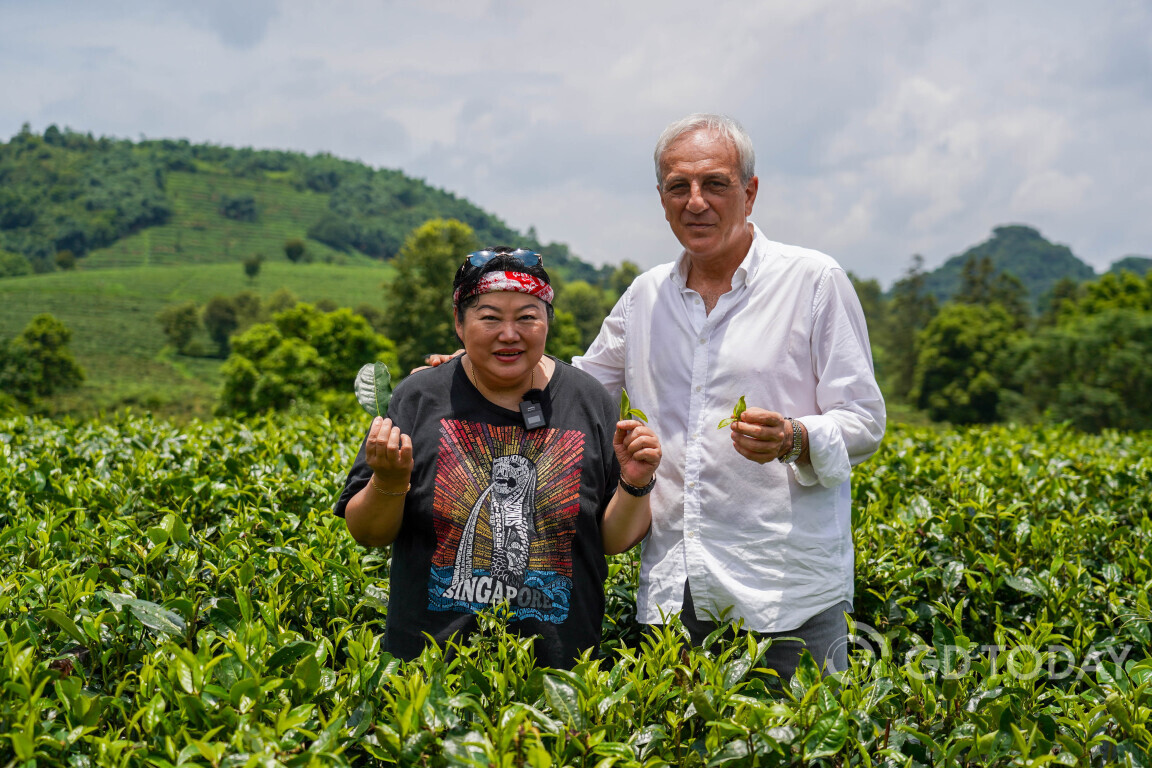
Umberto Naddei, a Member of the China-Italy Chamber of Commerce, and Joyce Lee, Vice Chairman of China Singapore Chamber of Commerce Guangdong Branch, in a tea garden in Yingde, Qingyuan, Guangdong.
Making organic teas for the sake of people's health
Located in the north-central Guangdong Province, Yingde has a long history of tea production. With a vast territory, Yingde features a warm and rainy climate, fertile soil and abundant organic matter, providing a favorable environment for the growth of tea trees.
Yingde Ji Qing Li Tea Industry Co., LTD. is a leading agricultural enterprise in Qingyuan engaged in tea planting and R&D, production and processing, trade and sales and tea culture promotion. It has planted over 200 hectares of Yinghong No.9 tea trees, and its major tea products are Yinghong No.9, Jinmaohao and Hongtiao tea.

"With a favorable ecological environment, we aspire to plant organic teas that are good for people's health, so we ferment the fertilizers on our own with peanut shells and cow dung as raw materials," said Fan Yanping, the executive general manager of Yingde Ji Qing Li Tea Industry Co., LTD. He also stressed that no pesticides would be applied to the tea trees.
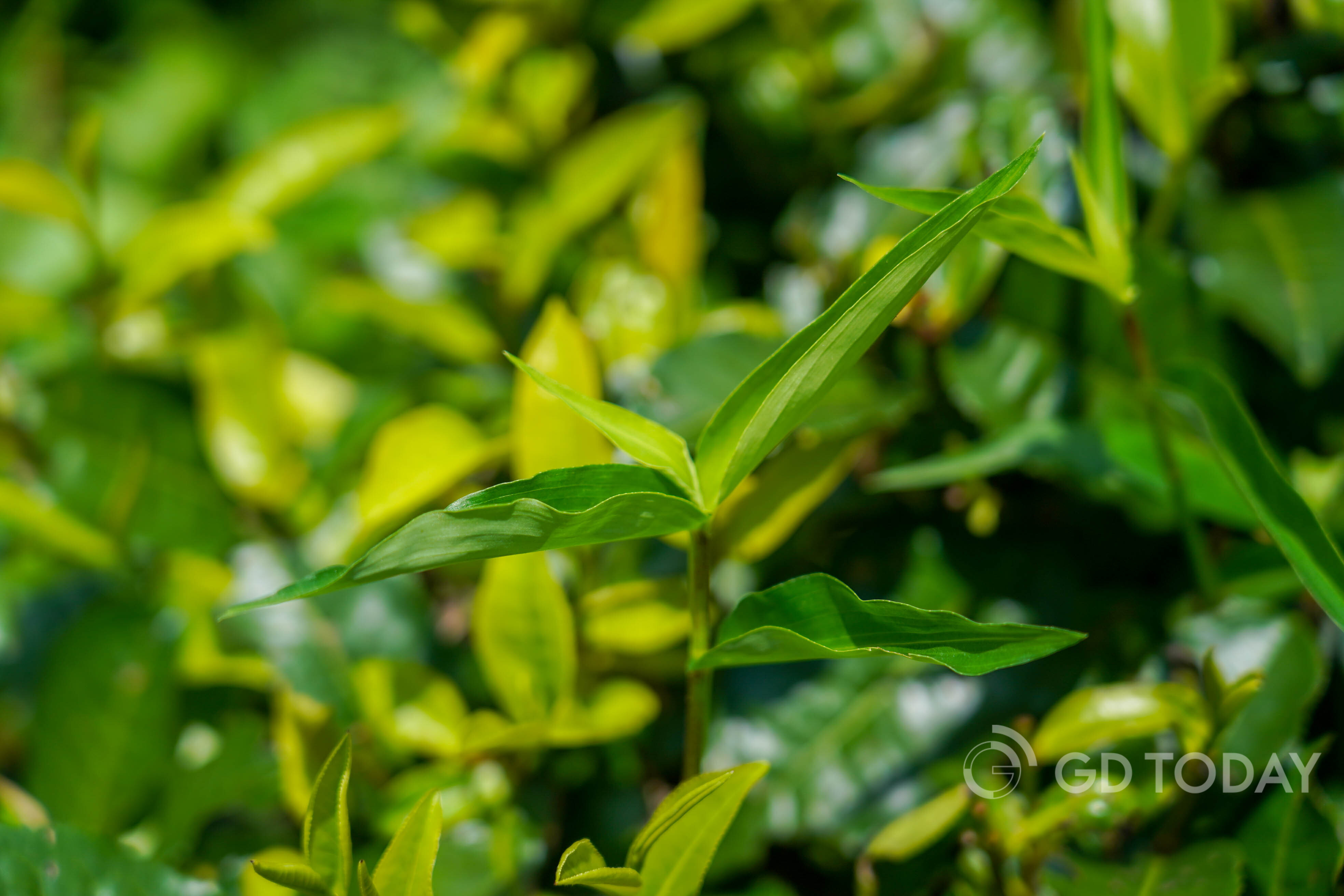
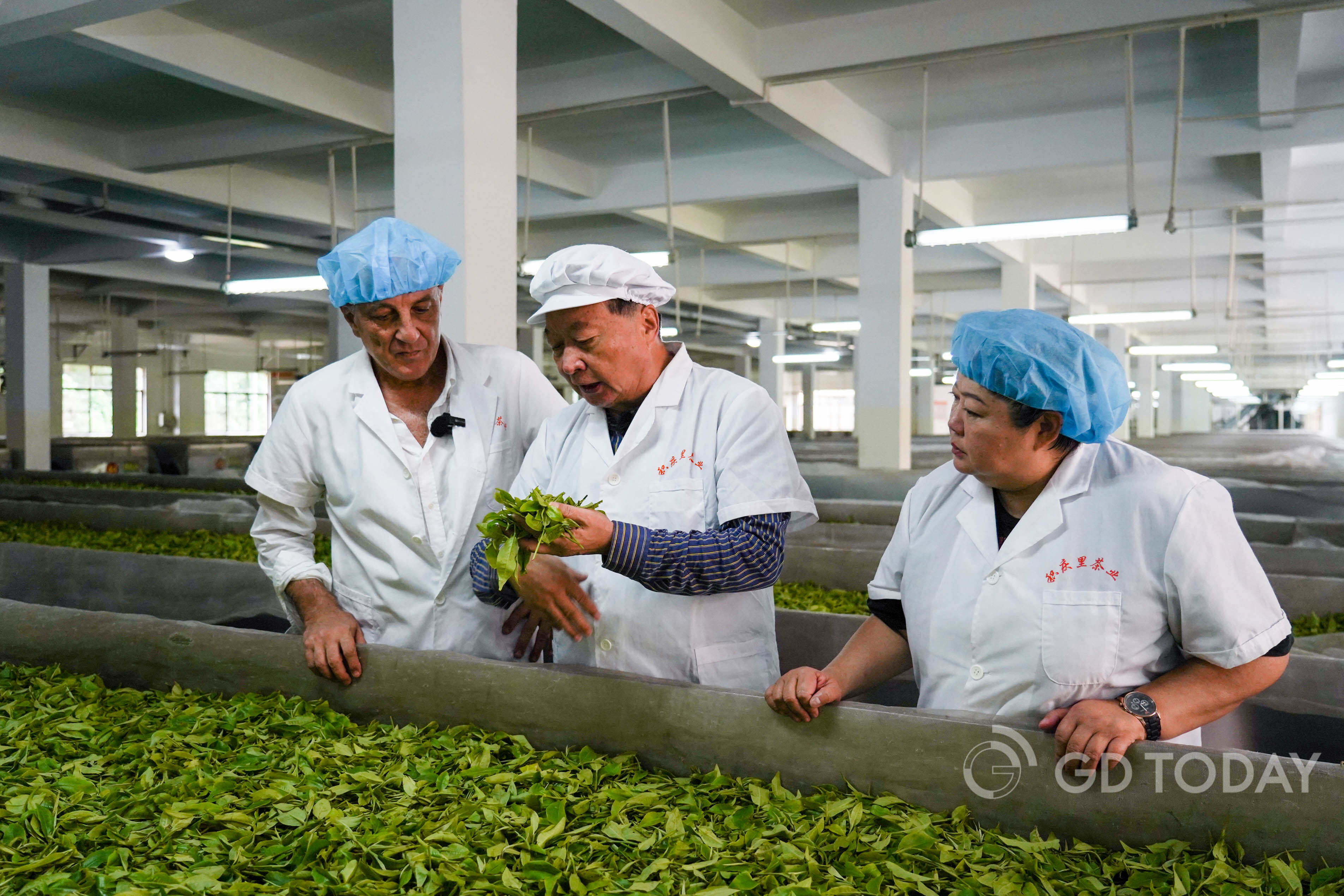
Zhu Aijun, the plant manager of Yingde Ji Qing Li Tea Industry Co., LTD., is introducing tea processing procedures to Umberto Naddei and Joyce Lee.
Artisan's over-50-year efforts to inherit handmade tea processing techniques
Although there are modern factories, traditional tea processing techniques still play an essential role in China's tea culture. Therefore, Umberto Naddei and Joyce Lee also visited an inheritor and experienced traditional tea processing techniques, to learn about the history and culture of China's handmade tea.
On November 29 last year, traditional tea processing techniques and their associated social practices in China were added to UNESCO's Representative List of the Intangible Cultural Heritage of Humanity. It consists of knowledge, skills and practices concerning management of tea plantations, picking of tea leaves, and the handmade processing, drinking and sharing of tea.
Zheng Guoming is an inheritor of intangible cultural heritage traditional tea processing techniques. Dedicated to traditional tea processing techniques since he was 14, this 65-year-old artisan has been engaged in the field for more than 50 years in Guangdong Yinghong Farmer Ecological Technology Tea Industry Co., Ltd., which is renowned for its handmade black tea.
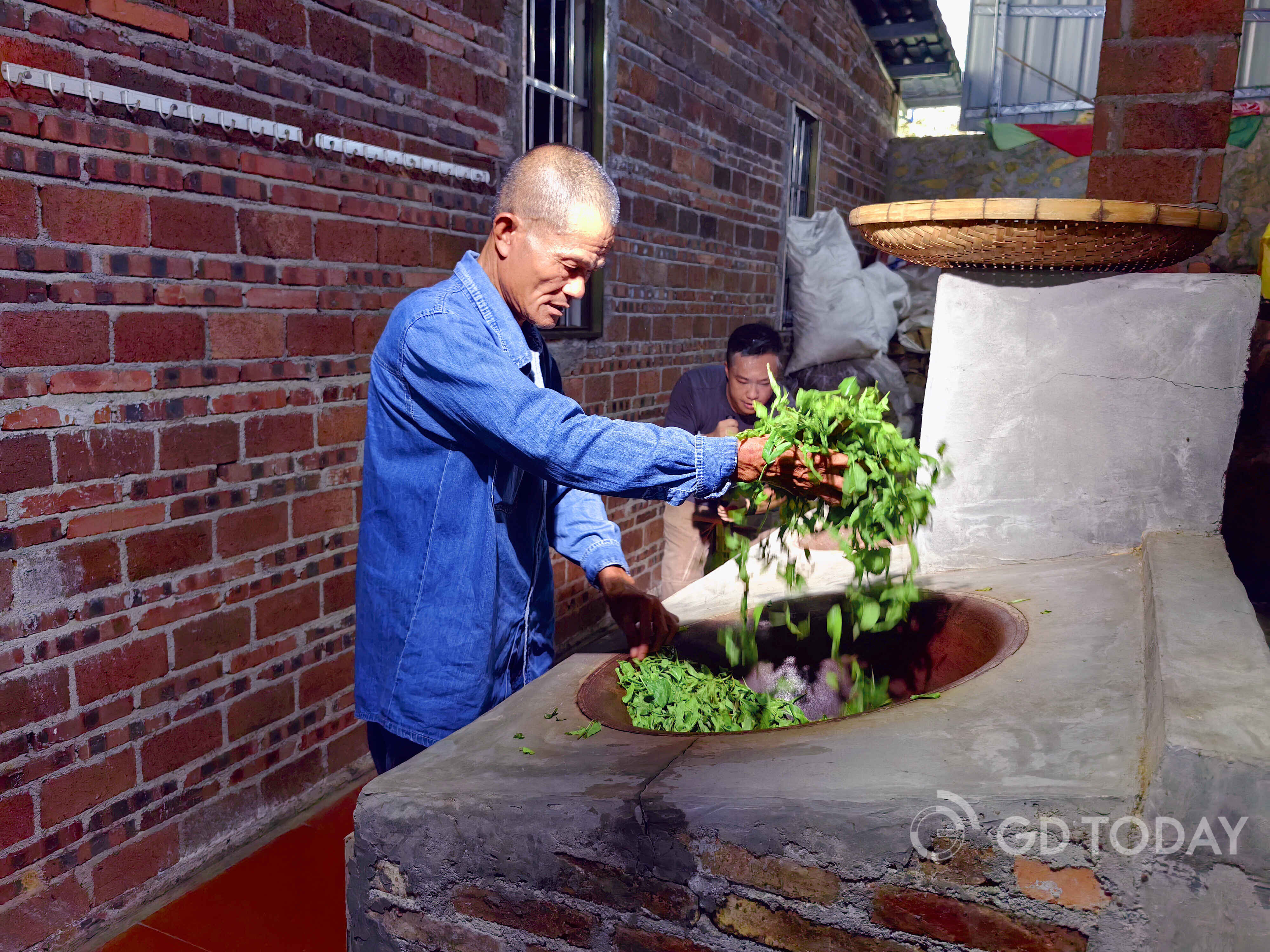
Zheng Guoming, the inheritor of intangible cultural heritage traditional tea processing techniques, is making handmade tea.
"Unlike automatic manufacturing lines, we depend on our own hands to feel and control the heat in tea stir-frying," he told Umberto Naddei and Joyce Lee. He also added that compared with machine-made tea, handmade ones are popular among professional tea lovers, because it is much more mellow and refreshing.
"It's a fantastic experience. I’m so excited to learn the story that Yingde locals such as Mr. Zheng have struck to preserve and promote their tea culture through generations of inheritance," marveled Joyce Lee.
Yingde black tea further explores international market
Yingde's black tea has gained a good reputation worldwide for a long time. Since being first exported overseas in 1959, it has won great popularity in the international market.
As of the end of 2022, the tea gardens in Yingde covered an expansive area of 116.7 square kilometers, yielding an annual output of 14,000 tons of dry tea. The tea industry's comprehensive output value amounted to 6 billion yuan.
Thus far, the tea of Yingde Ji Qing Li Tea Industry Co., LTD. is mainly exported as Yingde black tea to Hong Kong and Macao SARs and countries like Singapore, Australia and Canada. It's now striving to develop its featured product Yingde black tea into a brand to serve prestigious guests from both China and abroad.
"Next year, we plan to further promote Chinese tea culture in ASEAN countries together with a certain amount of tea for export," Fan Yanping furthered.
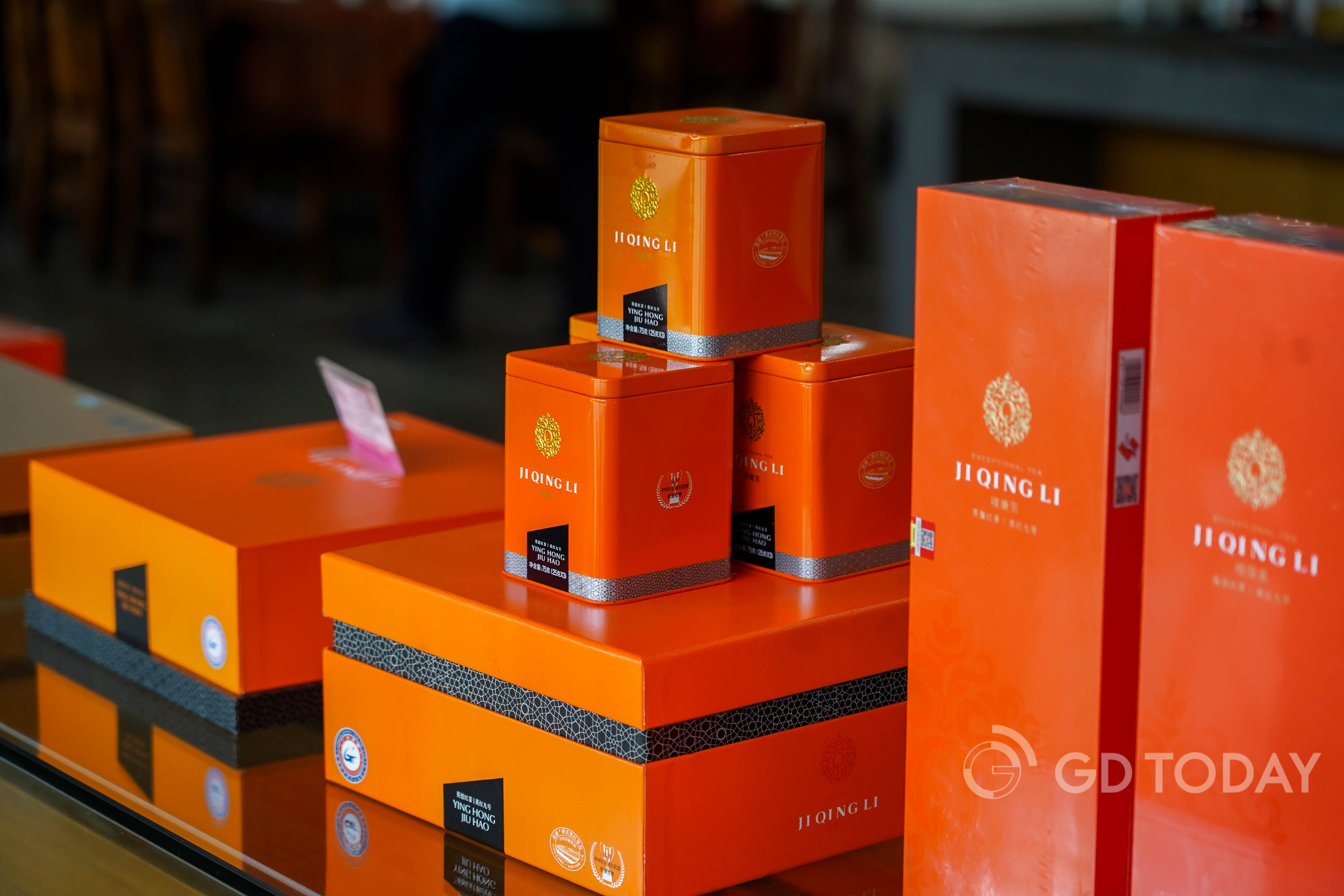
The tea gift boxes of Yingde Ji Qing Li Tea Industry Co., LTD.
Umberto Naddei also suggested that local companies should actively participate in some local agricultural exhibitions in Italy so that more Italians can get to know Yingde black tea. "Yingde tea is so organic. It's a kind of new trend in Italy and in Europe as well to enjoy organic food. They can probably match the wishes of the European people right now."
On July 12, a promotion event featuring a series of Guangdong-made agricultural products is about to kick off in Rome, the capital of Italy. Yingde No.9 black tea, the specialty of Yingde, will be ready to be served, together with Guangdong litchi in season and pre-made Guangdong cuisines. If you are interested in Guangdong flavors, just follow up.
Reporters | Nancy Ye, Abby
Video | Alice
Poster | Lu Lu
Editors | Olivia, Nan, Will, Abby, Jerry
















